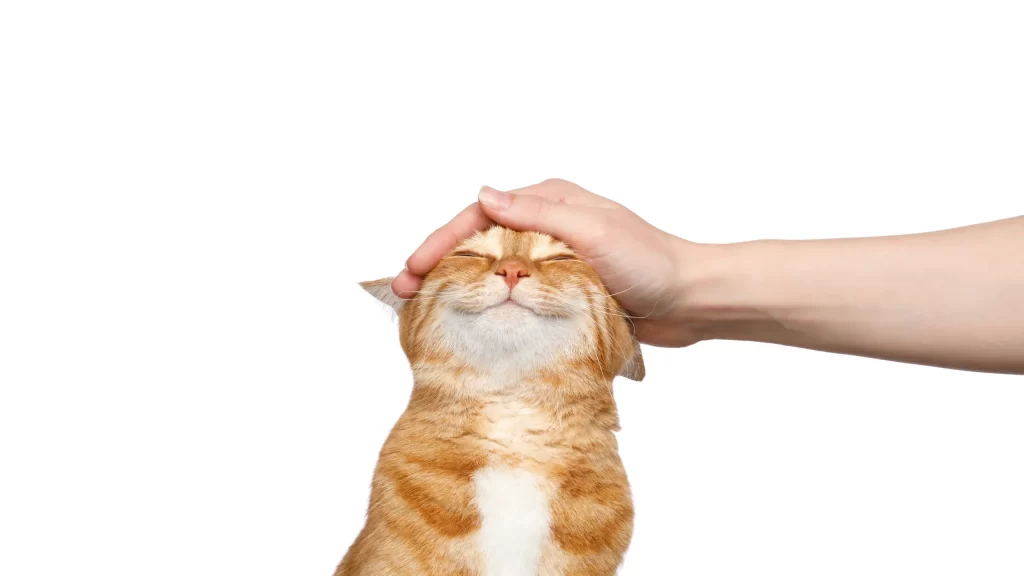The Prophet, peace be upon him, went out to a land in Al-Medina called Batahan. He said, “O Anas, pour water for me for ablution.” So, water was poured for him. When he finished, he turned to the vessel and found a cat drinking from it. The Prophet stood there until the cat finished drinking, then he performed ablution. Anas mentioned the incident to the Prophet, who said, “O Anas, the cat is not impure; it is one of the household objects. It will neither soil nor defile anything.”
Cats in Islam, also known as “Sunnur”, are considered pure animals. Hadiths from the Prophet Muhammad indicate their purity, permissibility of owning and nurturing them. The Prophet had an affection for cats, calling them “Tawafeen” (those who roam around) in houses. He would perform ablution from water that a cat drank from because it remains pure.
One of the companions was nicknamed Abu Huraira due to his deep attachment to cats. Cats are among the most commonly found animals in Muslim lands and are frequently kept as pets by Muslims. Unlike dogs, Islamic law permits cats to enter homes, houses of worship, and mosques due to their cleanliness.
The Prophet advocated for the kindness and fair treatment of animals. He narrated the story of a woman who entered hell for confining a cat, neither feeding it nor allowing it to eat from the earth. He also recounted the story of a man from Bani Israel who entered Paradise for quenching the thirst of a dog. The Prophet prohibited cutting off parts of animals that might cause them distress or harm, saying, “Do not cut off the forelocks and tails of horses, for they are a source of beauty and protection for them.”
These narrations embody wonderful human values, emphasizing compassion not only towards humans but also towards animals. Mercy should extend to animals as well as humans, necessitating kindness, compassion, providing them with food and water, actions that will be rewarded by God.

Abu Huraira, who narrated over 5,000 hadiths from the Prophet, was known for his great compassion towards animals. He had a cat whom he cared for, fed, and nurtured. The cat would accompany him everywhere, even hiding in his sleeves, hence the name Abu Huraira (father of the kitten).
The Prophet informed us over 1400 years ago that cats are not inherently impure. Cats are known for their self-cleaning habits, and Louis Pasteur remarked that cats are clean animals due to spending their days grooming themselves.
Due to the exposure of a cat’s skin to the external environment, it’s not surprising to learn that there are defensive cells like white blood cells in it. The skin contains numerous cells that modify the sensitivity of skin cells.
The surface of the cat’s tongue is covered with pointed, saw-toothed papillae, making it an effective cooling mechanism or very useful brush for cleaning the skin.
It was narrated by Dawood bin Saleh Al-Tammar from his mother that Aisha was gifted a leather mat with butter on it. A cat came and ate from it while Aisha was praying. Aisha indicated to leave it, and after the cat left, she took the mat, cleaned it, and ate from it. The Prophet said, “It is not impure; it is one of the roamers and wanderers among you.”
Modern science has shown that cats have a sterilizing substance called “Lysosome”. Cats dislike water and avoid it because it is an ideal habitat for bacteria, especially if stagnant. Cats maintain a constant body temperature and avoid the sun and water to prevent bacteria from adhering to them, which explains why there are no germs on their fur, which remains dry.
The Prophet’s knowledge about the cleanliness of cats, demonstrated by his ablution with its saliva, is a medical indication of its purity. Otherwise, he would not have performed ablution with its saliva.
Sunna Files Free Newsletter - اشترك في جريدتنا المجانية
Stay updated with our latest reports, news, designs, and more by subscribing to our newsletter! Delivered straight to your inbox twice a month, our newsletter keeps you in the loop with the most important updates from our website












